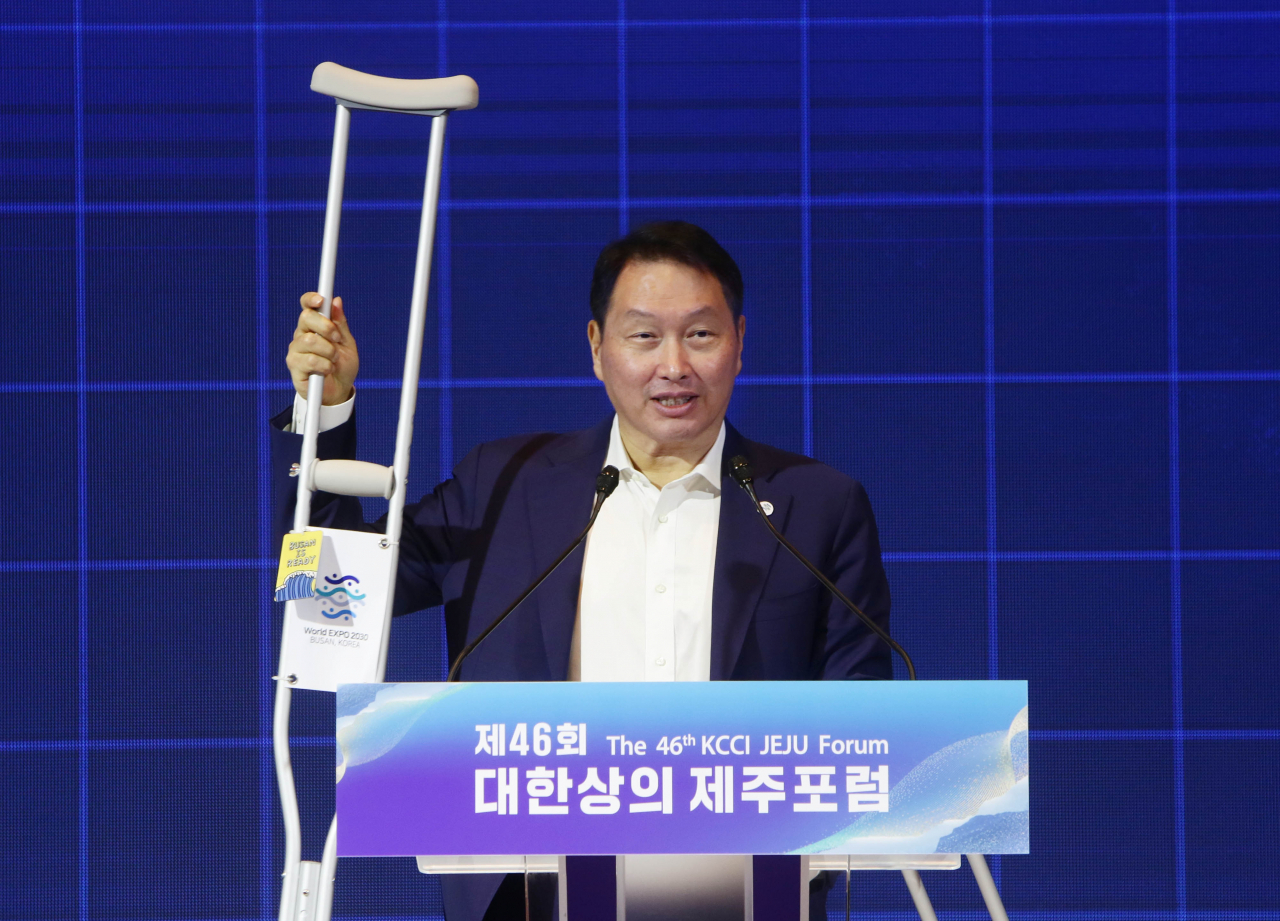 |
SK Group Chairman Chey Tae-won, who doubles as chairman of the Korea Chamber of Commerce and Industry, speaks during the 45th Jeju Forum held at Jeju Haevichi Hotel Resort, Seogwipo, on Wednesday. (KCCI) |
SEOGWIPO, Jeju Island -- Gone are the days when it was sufficient for companies to have the upper hand in the global market by sharpening their competitive edge on their own.
Governments and corporations teaming up together has become a global phenomenon to deal with uncertainties induced by supply chain disruptions and economic rivalry between the US and China, SK Group Chairman Chey Tae-won said Wednesday.
Fragmented global markets unfolded new ways of survival, requiring governments to partner with companies, Chey, who doubles as chairman of the Korea Chamber of Commerce and Industry, told reporters during the business group’s 45th Jeju Forum held at Jeju Haevichi Hotel Resort.
“There have been cases in which governments intervene in the market and step in corporate competitiveness itself … Now it has become a new form of global competition among major economies."
He took example of the display industry in which Korea handed over its No. 1 spot to China in the global market. “Once lost, an industry leadership will not be restored," he said on the first day of the three-day forum.
Achieving export-led growth was possible for Korea as “the whole world was bounded as one market,” in the past. The business model at the time was much simpler -- make quality goods and put them on the market at a low price.
"Now the US and China are divided, and the European Union has become several markets,” he said.
"We also need to discover many other markets to replace the Chinese market, which was the largest trading partner for Korea.”
On China’s reopening to the world after three years of President Xi Jinping's zero-COVID policy, the chairman said the expectation that it would help Korea’s sluggish exports recover was "too high."
“I think the impact of China's reopening (and resumption of economic activities) is small, but our expectation was too high that the Chinese economy would bounce back at once to the pre-COVID-19 level,” he said.
Still, the Chinese market with 1.4 billion consumers is too big to lose.
“If we lose all of the Chinese market, it will take a significant toll on our economy and lead to internal turmoil, so it is an issue that should be dealt carefully and managed well.”
The KCCI is pushing for high-level talks between Korea and China in November. With COVID-19 having shaken up industries and markets across the board, it is necessary to study China and establish cooperative relationships, Chey said.
Having SK hynix, the world's second-largest memory chipmaker, as his SK Group’s flagship unit, Chey said he hopes that the semiconductor industry would recover from the slump by the end of this year.
"It's not just going down to the bog, but it's going up to the upcycle without getting worse, and I expect the recovery will begin in six months or in a year," he said.
Decreasing predictability stemming from myriad uncertainties surrounding the chip industry has hampered management of the company, he said.
With semiconductors lying at the heart of the tech war between the US, and China, the chairman said there are warning signs the industry needs to take note of.
“Not only is the up-down cycle of the semiconductor industry gradually accelerating, but its amplitude is also growing,” he said.







